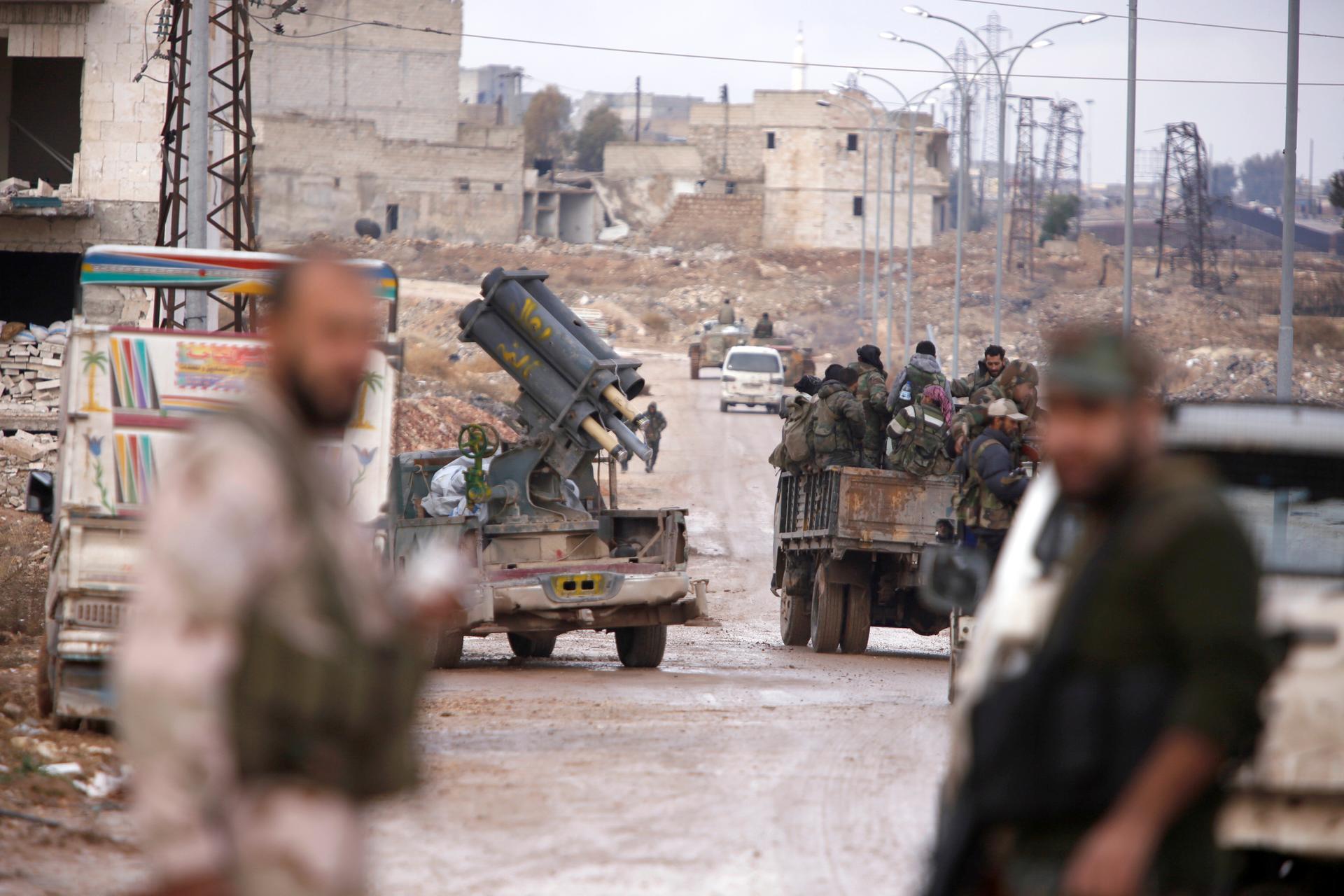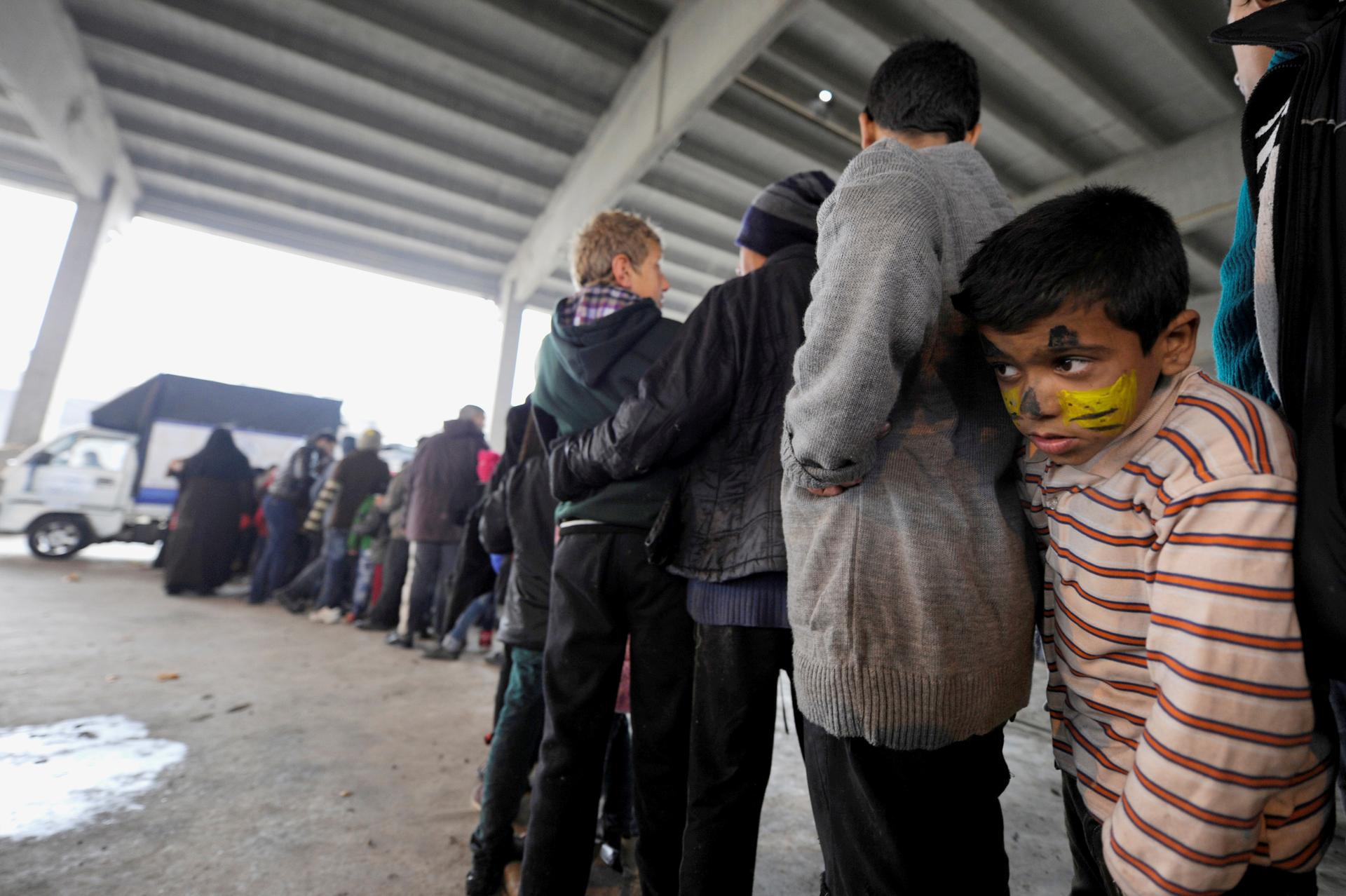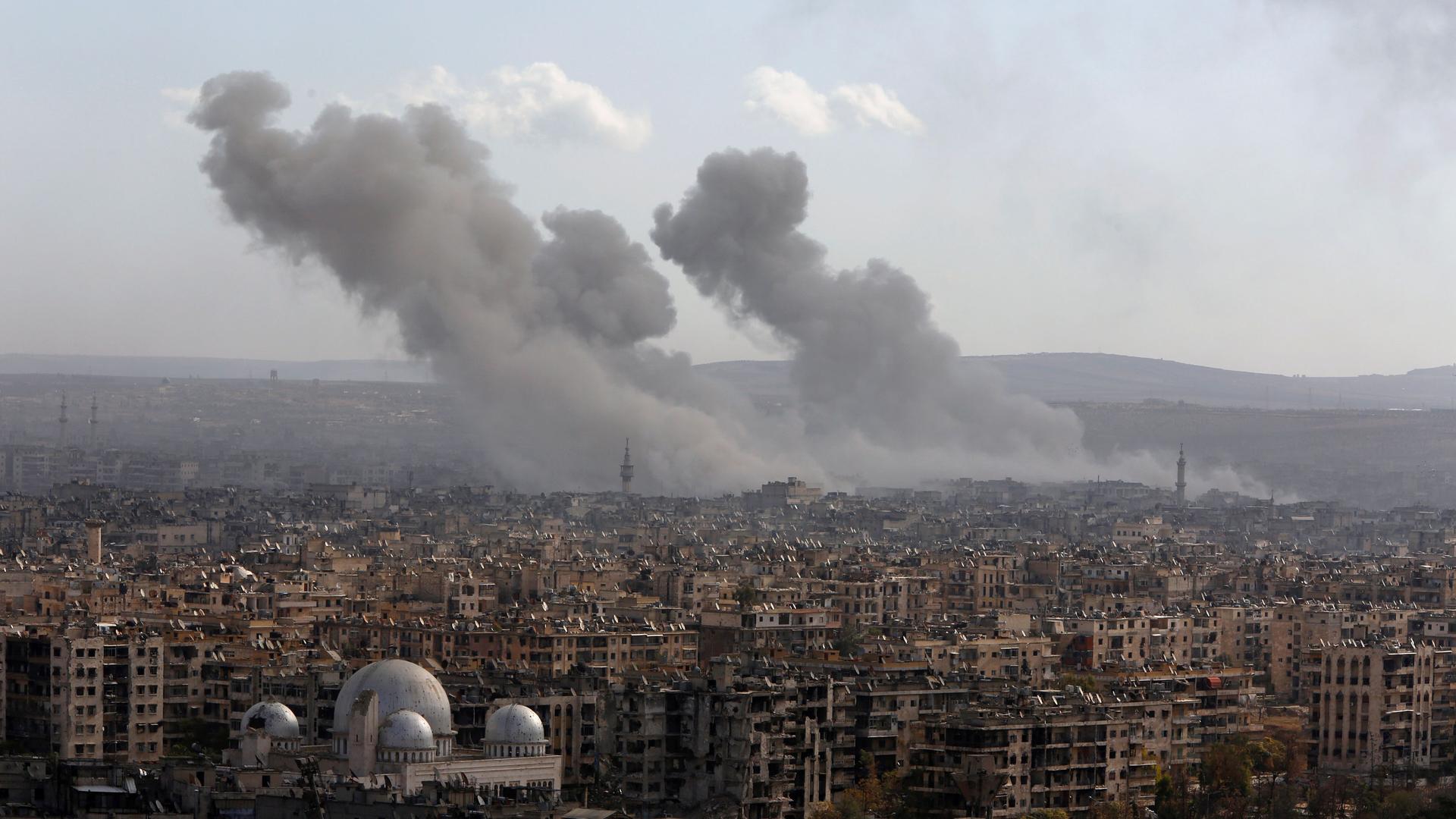The Syrian army has retaken over half of the rebel-held east Aleppo
Smoke rises after strikes on Aleppo, Syria, December 3, 2016.
Tens of thousands of civilians have fled eastern neighborhoods of Aleppo since President Bashar al-Assad's regime began its latest offensive in mid-November.
Overnight, government troops and allied forces seized the district of Tariq al-Bab where heavy fighting had raged a day earlier.
The government has now recaptured around 60 percent of eastern parts of the city that the rebels overran in mid-2012, the Syrian Observatory for Human Rights said.
The advance opens the road leading from the government-controlled west of the city to the international airport just outside Aleppo to the east, which is also held by the regime.
It has prompted more civilians to flee, heading either further south into remaining rebel-held districts or crossing into areas under regime or Kurdish control.
Assad's forces have made swift gains in east Aleppo, and its loss would be the biggest blow yet to Syria's opposition in the more than five-year-old war.

More than 300,000 people have been killed since the conflict started with anti-government protests in March 2011, and over half the country's population has been displaced.
The government has trumpeted its advances, and state television on Saturday showed buses full of residents going from west Aleppo back to their homes in neighborhoods retaken by the army.
Elite forces
More than 310 civilians have been killed in the government's assault on east Aleppo since November 15, the Britain-based Observatory says.
Nearly 69 civilians have been killed in the same period by rebel fire on west Aleppo, including nine on Friday, it says.
Rebels have struggled to hold back government ground forces, who have advanced backed by air strikes, barrel bombs and artillery fire.
On Friday, they rolled back some regime gains in the Sheikh Saeed district on Aleppo's southeastern outskirts, but it was unclear how long they could hold that line.
Sheikh Saeed borders the last parts of Aleppo still in rebel hands — densely populated residential neighborhoods where thousands have sought refuge from advancing regime forces.
In preparation for street-by-street fighting in these districts, hundreds of fighters from Syria's elite Republican Guard and Fourth Division arrived in Aleppo Friday, the Observatory said.
The fighting has prompted more than 50,000 people to leave east Aleppo for territory controlled by either the government or Kurdish forces.
Of those who have fled, nearly 20,000 are children, the UN's children's agency estimates.

On Friday, as the army advanced in Tariq al-Bab, an AFP correspondent said residents had left the neighboring district of Shaar, fearing the arrival of fighting.
He said just a few rebels could be seen in the district, manning positions in front of shuttered shops and bakeries.
Vegetable stalls that had been selling meagre supplies after more than four months of government siege were shattered by artillery fire.
'Lose peace'
On Saturday, the Observatory said three people were killed in air strikes on Shaar, and that raids were targeting other eastern neighborhoods.
Five people were killed by rebel fire on west Aleppo, the Observatory and state news agency SANA said.
The Observatory said two Syrian air force pilots were killed overnight when rebels brought down their plane near Aleppo airport, which is close to rebel-held areas.
The escalating violence has been met with international outrage, including a UN warning that east Aleppo could become "a giant graveyard."
On Saturday, top EU and UN diplomats warned there could be no victory in the battle for Aleppo without negotiations to ensure a viable future for Syria.
"You can win a war but you can lose the peace," EU foreign affairs head Federica Mogherini said.
UN Syria envoy Staffan de Mistura said he hoped a regime victory in Aleppo would not lead "the government to say: 'We won the war, and therefore no need for negotiations.'"
Russia, a staunch Assad ally, has proposed setting up four humanitarian corridors into east Aleppo but said regime approval remained essential.
Russia has announced several humanitarian pauses in Aleppo to allow civilians to flee, but until the recent escalation, only a handful did so.
Many civilians in the east previously expressed fear of leaving to government-held areas or through passages run by Russia, which began a bombing campaign in support of Assad's forces in 2015.
But Damascus and Russia accuse rebels of using civilians as "human shields."
by Karam al-Masri/AFP
Every day, reporters and producers at The World are hard at work bringing you human-centered news from across the globe. But we can’t do it without you. We need your support to ensure we can continue this work for another year.
Make a gift today, and you’ll help us unlock a matching gift of $67,000!
